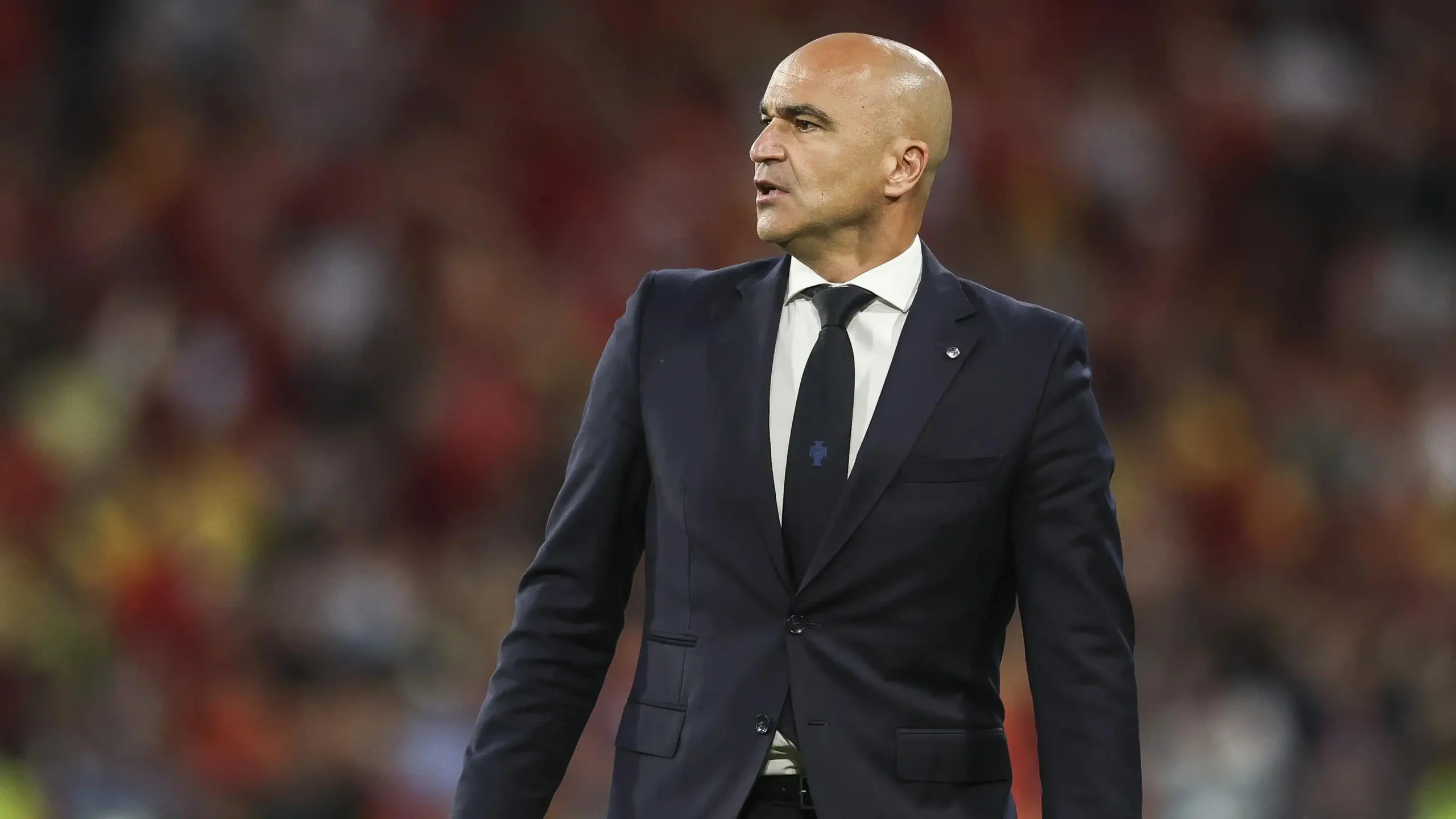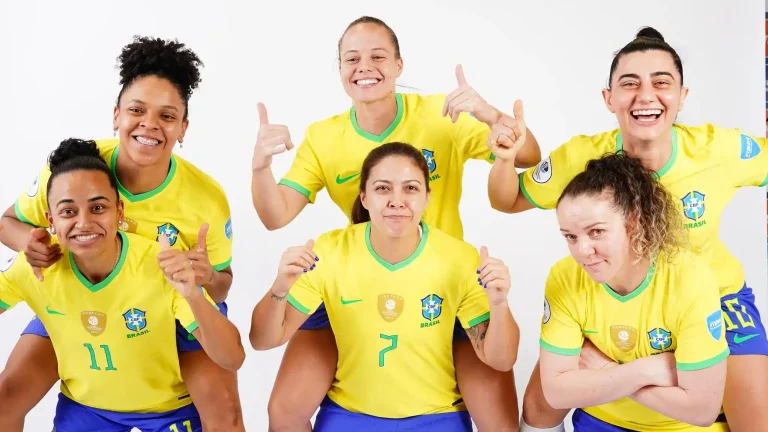The FIFA World Cup™ evokes indescribable emotions, unforgettable moments and images that go down in history. Roberto Martinez knows this better than most, having guided Belgium to third place at the 2018 FIFA World Cup Russia™. Now in charge of reigning UEFA Nations League champions Portugal, the Spanish tactician is seeking to go even further.
With a relentless Cristiano Ronaldo aiming for his sixth appearance on the world’s biggest stage and the eternal memory of the late Diogo Jota, Portugal under Martinez are fully committed to next year’s challenge. The coach sat down with FIFA ahead of the opening qualifier in Armenia.
Roberto Martinez: Looking back at qualifying campaigns, you realise the first challenge comes from the international windows themselves. There’s always instability in September because some players have just changed clubs, others are in better form than their team-mates and the month always brings added complexity that you have to work hard to combat.
There are no walkovers and everyone prepares well for every opponent. This time we also face back-to-back away matches, which adds to the difficulty. Every international window has its own obstacles before you even measure up against the opposition. Hungary, for example, have had the same coach for many years and have a very clear philosophy. They make excellent use of [Dominik] Szoboszlai’s talent and showed against Germany and the Netherlands how well drilled they are defensively. They’re also very dangerous on the counter.
With the home crowd behind them, Armenia will treat their opening World Cup qualifier as a highly emotional occasion, which we’ll have to handle. We know about the challenge that lies ahead and the importance of both September fixtures.
At this level, the danger can come from subconscious traps. No one disrespects a qualifier when there are only six fixtures. We’re fully focused and know exactly what we must do to book our ticket. Before reaching the Nations League finals, we already understood the task ahead involving a group of four. Having six games makes the margin for error even smaller. We’re well versed in that. In the Nations League against Germany and Spain, we also experienced what it means to play back-to-back high-level matches. Now we must quickly adapt to the unique demands of facing Armenia and Hungary, who will test us in completely different ways and push us to the limit.
The experience from the 38-game run is hugely valuable. At the same time, you’re aware that records exist to be broken. My first qualifying campaign was ten games, then eight, then another ten, and now just six. Smaller groups mean you need to be on high alert, as we saw in the Nations League. Home and away dynamics change quickly and the favourite’s tag can be very deceptive. Experience helps, but it’s also about recognising that these six matches will be particularly demanding.
I see the coach’s role as helping players and teams achieve their goals. Experiencing a third World Cup is something I’d never imagined. It’s the sort of thing you think you’ll only see on television when you’re little watching the tournament. It feels like a dream. The diversity of the World Cup – from Russia to Qatar and now this upcoming edition with a new format – makes it all feel like part of that same dream. That feeling is still very much alive.
The World Cup is the reason we’re in football. When you fall in love with the game as a child, the first big reference point is your first World Cup. That’s what it’s about. It’s a competition where fine margins create champions and turn players into legends forever. That was my experience in Russia and Qatar. The margins are so fine, but we often have a false perception of the winners. We think that successful teams or match-winning players are a cut above the rest, but that’s not the case. It’s the best competition on the global stage where the margins are even finer and success is determined by specific moments. No side cruises to 3-0 wins in every match. Champions are teams that adapt, show resilience, respond to adversity, turn difficult situations around and adapt when a poor decision from outside goes against them. That’s what sets them apart from the rest. The line between success and failure is finer here than in any other competition.
Absolutely. The aim was to play seven matches, which we accomplished. The team was in wonderful form, with very strong bonds among the players. That group loved to take risks and play attacking football, which won over so many neutrals worldwide. Winning six out of seven games was no coincidence. It was a remarkable achievement. Coming unstuck against France in the semi-final because of a set piece showed just how fine the margins are when it comes to reaching the final. What stays with me is the commitment to improving, the selflessness throughout the squad and the way everyone gave everything for the collective. Clinching the bronze medal was the best result in Belgian history and that crop of players fully deserved it.
It’s something that Cristiano manages to improve every single day. In many ways, I think his greatest strength is his ability to push himself to be his best version all the time. That’s extremely difficult because winning, lifting trophies and achieving success can sometimes diminish your hunger to get up and go again the next day. He’s shown that his mentality and drive are his greatest force. Having someone who’s won the lot but still wakes up with the same hunger to keep improving is hugely inspiring. He’s the standard-bearer in the dressing room, giving the younger generations a much clearer path to follow. His influence goes far beyond what he’s like as a footballer or what he contributes to the team.
It hit the entire football family in Portugal extremely hard, but also the wider football world. The messages and outpouring of affection for Diogo showed what sort of person he was. He was able to reach so many families in so many places. We now have a duty to make sure that Diogo is always with us whenever the national team comes together. We want to carry forward his values, which helped us win the Nations League, because he was a true leader in the dressing room. His strength, battling spirit and determination must always remain with us. This first camp will inevitably trigger a range of emotions because not having Diogo there will be very hard, especially given the tragic circumstances. Losing Diogo and his brother, Andre Silva, has been painful for all of us and a harsh life lesson. What matters now is that we get to fight for one of his dreams, which is winning the World Cup. There’s no greater motivation than keeping his spirit alive in the national team.
I have so many. The first is the 1978 final, although I don’t remember that whole World Cup. I can picture the final very clearly, with Mario Kempes, who stirred up so much excitement, and the Netherlands, one of the great teams from that era. The final with the paper confetti all over the pitch left a lasting impression, but the World Cup I followed most closely was in 1982. We’re the Naranjito [the tournament mascot] generation and I remember following all the players closely.
The 1978 tournament unleashed my passion for football, while I lived through it day by day in 1982. I could really enjoy it and analyse it tactically with my father by 1986. We loved those conversations and, of course, seeing a player as influential as Diego Maradona carry a team to glory.
That sparks the eternal debate as we love individual talent and it can be worth building the team structure so that the individual can shine. At times, as in that case, he can win you the World Cup. What Maradona did in 1986 and replicated in 1990 showcased a capacity to serve the team that is within reach of very few.
There were so many fascinating elements that those three tournaments left me wanting to enjoy them first-hand.



